Suddenly there appear to be several late entrants in the race for the Democratic presidential nomination. The most serious so far is former New York Mayor Michael Bloomberg who has filed for the ballot in Alabama and Arkansas and who intends to skip the early contests in Iowa, New Hampshire, South Carolina and Nevada in order to concentrate on the more populous and delegate rich states that have primaries on Super Tuesday.
Can this work? History says no.
The most recent presidential hopeful to adopt this strategy was, ironically, another long-term mayor of New York City – Rudy Giuliani. Back then he was not the shadowy, slightly unhinged lawyer to President Trump who these days is known for peddling conspiracy theories, running an alternate foreign policy in Ukraine, and butt-dialing reporters. Back then he was “America’s Mayor” a reference to his starring role in helping New York city persevere through the 9/11 attacks.
But Giuliani had a problem. He was a cultural liberal running in a party dominated by cultural conservatives–especially in Iowa and South Carolina. He also saw the prospect of facing Mitt Romney, a former Massachusetts governor, in New Hampshire and realized that Romney would be hard to beat. So, he decided to place all his bets on a win in Florida. Florida was a pretty good state for a former New York City mayor since a non-trivial part of its population consisted of New Yorkers and other northeasterners who retired there. Florida’s primary was scheduled for January 29, 2008, and Giuliani figured that a win there could catapult him into the February 3 contests (Super Tuesday) which offered a bonanza of delegates. Internal Giuliani campaign memoranda from April 2007 reported that Giuliani led in 11 of the 17 primary states that day. However, not everyone thought this was the best strategy, in part because it was built on the assumption that the early contests would offer a split verdict allowing Giuliani to emerge in Florida.
That’s not what happened.
Arkansas Governor Mike Huckabee won a large victory in Iowa and Senator John McCain (Ariz.) won the New Hampshire primary, beating Mitt Romney and thus re-gaining the admiration and attention of the national media. McCain then won the South Carolina primary, capping his comeback. Thus, going into the Florida primary, the story was all about McCain and Huckabee–no one was talking about Giuliani. He finished in third place in Florida behind McCain and Romney, with a paltry 14 percent of the vote. Because Florida was winner-take-all McCain won all the delegates. Giuliani dropped out of the presidential race the next day.
Like Giuliani before him, Bloomberg needs the early contests to be indecisive. He has to hope that Biden does not become the “comeback kid” in one or more of the early states. (“Comeback kid” was the term Bill Clinton made famous when he had an unexpectedly strong showing in the New Hampshire primary in 1992.) He has to hope that the left wing of the Democratic party doesn’t coalesce around Elizabeth Warren, allowing her to emerge as a plurality or even a majority winner. He has to hope that African American voters in the southern states on Super Tuesday warm to the candidacy of a billionaire New York City Mayor. And finally, he has to hope that money spent on ads and on organizing can beat the momentum that has so powerfully propelled candidates to national prominence ever since Jimmy Carter came out of nowhere to win the Iowa caucuses in 1976.
If Bloomberg were an ordinary candidate I’d bet the house that his would be a losing strategy. But, unlike other billionaires, Bloomberg has a substantial record of accomplishment as an elected official and mayor of New York. He also has a lot of money – even for a billionaire. 2020 may be the first test of money versus momentum. And if Bloomberg pulls it off, it could change the system in a big way—at least for billionaires.
The Brookings Institution is committed to quality, independence, and impact.
We are supported by a diverse array of funders. In line with our values and policies, each Brookings publication represents the sole views of its author(s).

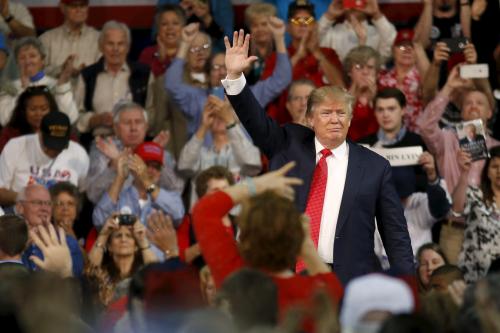
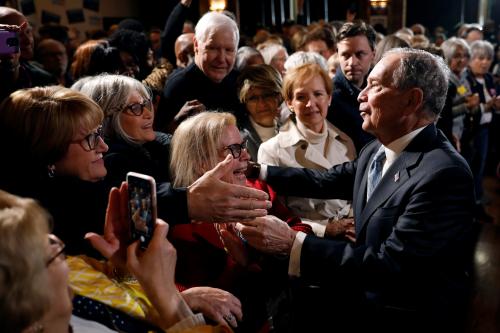
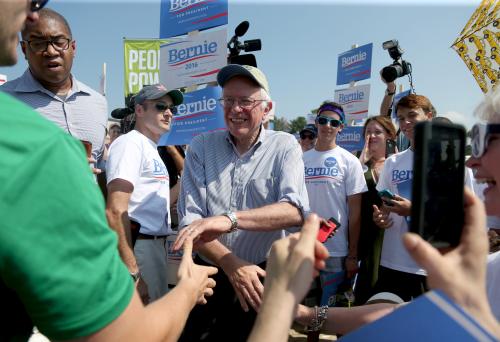
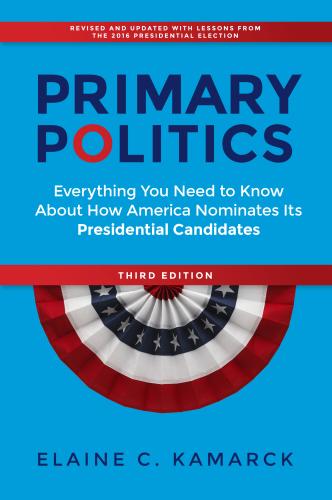



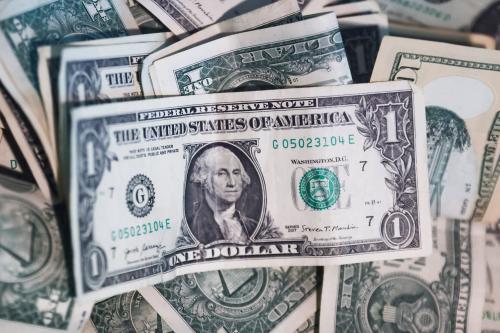
Commentary
Can a presidential candidate really skip the early states? Ask Rudy Giuliani
November 13, 2019